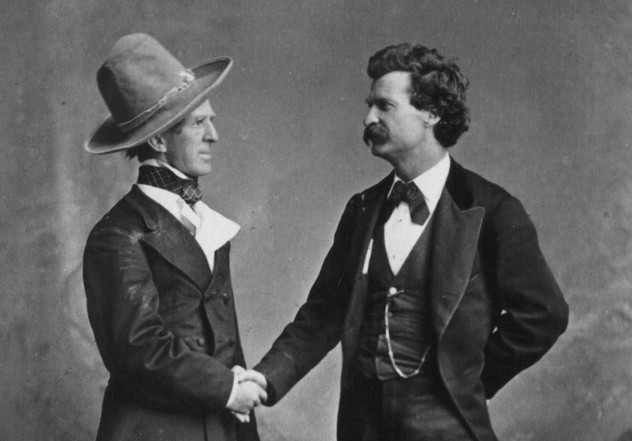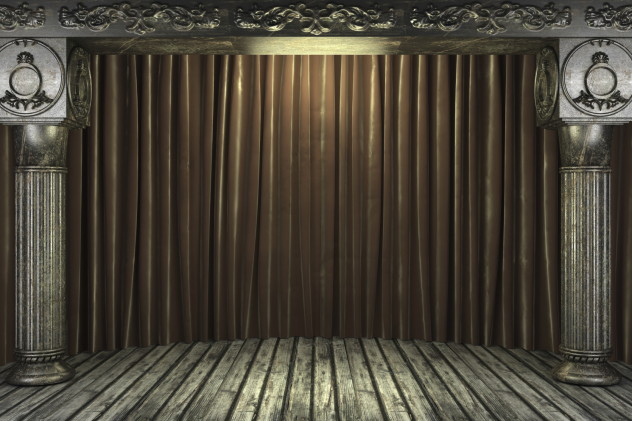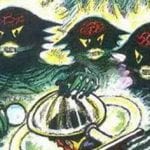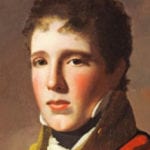10He Collected Little Girls
In his later years, Twain found himself lonely and without any family to fill his home. His wife had died and his surviving daughter was touring Europe on a singing tour. According to Twain, he was of grandfather age but without any grandchildren. So, being Mark Twain, he decided to get some. In Twain’s own words, he started collecting pets—young girls to be his surrogate granddaughters. Twain had been making trips to Bermuda. Its tropical fish had impressed him, and he called each young girl ages 10–16 an “angelfish.” The group was called the “Aquarium Club.” Each angelfish had a fish-shaped pin and had to adhere to a club constitution. Planning to have his Connecticut estate constantly filled with his young girls, Twain named it “Innocence at Home” to mark it as the Aquarium’s base of operations. Twain’s collection flourished until his own daughter returned from Europe and put a stop to what obviously reeked of scandal.
9He Was A Huge Sucker
Twain was a sucker for get-rich-quick schemes and bad investments. In his early days, he became enamored with the idea of striking it rich by mining the Nevada territory for gold and silver. He found nothing but bad luck. It was fortunate in the long run, though, since he honed his writing skills by writing for newspapers to make ends meet. It was his lack of success in mining that forced him into writing as a career. Once he made his money in writing, Twain made a string of horrible investments. He invested in an engraving machine called the Kaolatype, which he dreamed would revolutionize the printing industry. The inventor had already ruined one business, but Twain invested his money in the idea despite the inventor’s shaky reputation. When Twain went to see the machine in person, the shop had an untimely accident and burned to the ground the night before he arrived. Undaunted, Twain kept faith and made an appointment to go to the inventor’s own workshop. Coincidentally, it also burned down the night before he arrived. Even after Twain finally realized he was being taken for a ride, he never stopped believing that the machine could have actually worked. The next person to take advantage of Twain’s bad judgment was James Paige. Twain believed his “Paige Compositer,” an automatic typesetting machine, would do what Kaolatype didn’t and revolutionize the publishing industry. Paige milked Twain for about $4 million in today’s currency over the course of 14 years. The inventor, along with Twain’s own failed publishing company, eventually bankrupted the author. His enormous debts forced his family to Europe and Twain went on a highly publicized lecturing tour to pay them off. Once he finally paid back all the money he owed, he immediately began laying down plans to invest another $1.5 million in another invention that would design textiles. A friend talked him out of it, though it may well have been the one time Twain actually would have struck gold. The inventor of the textile machine went on to design a series of other successful inventions.
8Huck Finn Almost Went Crazy And Died In Misery
Twain’s money problems put a serious strain on the writer. It brought him to a very dark place where he struggled with depression. Evidence of Twain’s mental state can be seen in notes for a new novel starring the famed Huckleberry Finn and his friend Tom Sawyer. The idea for the novel was set long after after the events of his last book with the young and lovable character. In the new novel, Huck Finn was 60 years old and completely insane. Arriving from “nobody knows where,” Huck tried to find his old friends Tom and Becky in every face he saw, thinking he was still a boy. The notes aren’t clear, but he eventually did find Tom, who was also a desolate failure. Tom had apparently been wandering the world but, like Finn, had amounted to nothing. The story ended with everything good and beautiful in the past, and they died together. Fortunately for the popular pair of characters, nothing ever came of Twain’s idea. Twain himself also made a comeback and pulled himself out of his own dark times.
7Twain Talks Masturbation, Farting, And Sex
Mark Twain’s mouth was so filthy it was once said profanity was so much a part of him that when he swore it was “not like real swearing.” His writing, however, was watered down by the era in which he lived. Much of his work would have been unpublishable had he actually said what he wanted to say, so he restrained his content and settled for dashes between some key letters for the profanity that survived his editor’s pen. Still, there are a few times his dirtier side showed. He once gave a comic lecture about masturbation named “Some Thoughts on the Science of Onanism.” In his lecture on onanism (an old term for masturbation), he fired off a series of imaginary and comical quotes about masturbation that he attributed to a number of famous historical figures. He likens it to the “social evil” of farting, though masturbation was perhaps a little worse since farting is occasionally permissible in public. To conclude his lecture, he recommended that when the need for gratification arises, a young man should find another way to sate it instead of “jerking it down.” There’s also a bawdy piece about farting and sex titled “1601: Conversation, as It Was by the Social Fireside, in the Time of the Tudors.” The story begins with the Queen of England hearing someone rip a monstrous fart, which then exploded into a discussion on the subject. The conversation eventually swung toward virginity. Naturally, the work was suppressed for many years after Twain wrote it.
6Mark Twain: Psychic
Twain thought himself in possession of psychic powers. He stopped short of calling it clairvoyance, though, instead opting for his own invented term of “mental telegraphy.” He came upon his idea after sending out several letters but receiving letters about the same subject mailed to him on the very same day. He claimed there was some kind of mental connection between himself and his addressees. At times, Twain even claimed he knew the contents of letters before he opened them. His mother shared a belief in his psychic prowess. As a child, he had been sleepwalking one day and fidgeted with the blankets of his sister, who was dying of yellow fever. Since his sister died a few days later, and his actions were in accordance to a local superstition, his mother believed Twain had some kind of second sight. He also had a disturbingly accurate premonition about his brother Henry. According to Twain, he had a dream where he saw his brother lying in a coffin. The dream had a number of strange details, including Henry’s coffin, clothing, and a bouquet of white roses with a red one in the center. Henry Clemens later died in a boiler explosion aboard a steamship. When Twain came to see his body, he found his dream mirrored in real life. Henry had on his brother’s clothes. The surrounding coffins were unpainted pine, but Henry’s friends had bought him a better one. The bouquet was missing, but was immediately supplied when an old woman passed Twain by and laid it on his brother’s chest.
5Mark Twain: Would-Be Coca Baron
Instead, he signed onto the steamboat he was riding. Twain’s boyhood dream had been to be a steamboat captain, and on the journey he’d made it a point to ingratiate himself with the crew. According to Twain, he stood on deck without a hat for hours in order to get the leathery skin of an experienced traveler. How true that was can never be substantiated, since Twain was well known for mixing fact with fiction in his memoirs. But what can be ascertained was that he eventually had to face up to the fact that his scheme probably wouldn’t work. So, instead, he turned his boyhead dream into reality.
4He Almost Died, Possibly Over A Dozen Times
Since the day Twain was born, he had been dancing with death. Born premature, even his mother expected him to die a babe. Fortunately for the world of literature, the baby born Samuel Clemens clung to life. Still, even though he survived infancy, he was bedridden until four and frail until seven. Later, according to Twain’s autobiography, he almost drowned nine times in the Mississippi river. Even though he couldn’t swim, he loved to play near the water. He fell in from time to time, and had to be pulled out by so many people he forgot who all of them were. That said, just like his sunburn on his steamboat trip, it’s a bit hard to tell how true this was because of the nature of Twain’s autobiography. Probably it was at least based on a true story, if not entirely grounded in reality. Another time he’d almost died young was during a measles epidemic in his hometown. Twain said he’d crawled into bed with another infected boy to give himself the disease. It nearly killed him. As an adult, Twain wrote that he almost committed suicide. While going over the letters of a friend, he wrote in the margins how he once put a gun to his head. Twain scholars disagree whether it actually happened, but likely the event took place while he lived in California. Twain had been suffering from severe depression during that time and wrote a letter to his brother declaring that he would commit suicide if things didn’t start looking up within a deadline of three months. Even later, he was almost mistaken for a burglar and shot. A friend of his had said that he wanted to walk in the skies. Urged on by a night of hard drinking, the pair took to the city roofs for a late-night stroll. Creeping across rooftops at night was bound to draw attention, though, and a watchman drew a pistol on them. Fortunately, someone shouted out who the pair was and they lived to see another day.
3Orion Clemens’s Shocking Lost Autobiography
Orion Clemens was Mark Twain’s older and unsuccessful brother. While Mark Twain got his start writing for his brother’s newspaper, it sadly went under after Twain left for greener pastures. Orion toyed with law and politics, but both left him destitute and relying on Twain for money. The Clemens family was even once offered a huge sum for land they owned in Tennessee. The money Orion and Twain could have brought in would have made them both rich, but Orion, a staunch Christian, refused on the ground that it would be used for wine production. Sadly, even his religion ended in misery. He was excommunicated from his church after a lecture on his views about the Old Testament. Since he failed in almost everything he undertook, it prompted Twain to propose he write something called The Autobiography of a Failure. Twain told Orion to write it absolutely truthfully, as if there was no audience, revealing all his sins and failings. Surprisingly, Orion did exactly what Twain wanted. But he did too fine a job. Aside from publicly humiliating Orion, it could have even embarrassed the entire Clemens family after it exposed the detail of their father’s autopsy possibly by suggesting he was an adulterer. After reading it, Twain’s editors were too shocked to publish it. Even Twain himself, at one point the owner of his own publishing company, didn’t publish the piece despite having once praised it. The manuscript was eventually lost by Twain’s first biographers, probably on purpose.
2His Famous ‘Drawl’
While history remembers Mark Twain as one of the US’s most influential writers, he actually first became a household name as a traveling lecturer. Twain’s story The Celebrated Jumping Frog of Calaveras County had earned him a place in the national literary scene, which he further built upon with a humorous travel book. But, in large part, what made Twain famous in his own time were his humorous lectures in which he developed the ideas in his book. It was not unlike modern stand-up comedy. Twain traveled the country with his lectures, which brought both his stories and his unusual voice into the national spotlight. He became noted for his “drawl,” which critics either loved or hated. His delivery was particularly slow, prompting one reviewer to even say that he spoke at a rate of three words a minute. Long pauses were exaggerated as part of his act, but his unusual manner of speaking was commented on by almost everyone he met. Some called it “irresistible.” Others said it was “intolerable” and, added to his natural slowness of moving, made him seem abnormally lazy. Twain himself was embarrassed by his drawl, and he even called it an infirmity of speech.
1Mark Twain’s Voice: Lost
Twain was fascinated by new technology. He penned a few works of science fiction, one of which had a system of long-distance communication reminiscent of the Internet. He wasn’t a true science nerd, but he was an inventor. Twain actually created the device that would later become the bra strap. And his love of new technology made him gravitate towards two of the greatest minds of his day: Thomas Edison and Nikola Tesla. At the time, Edison had been experimenting with the phonograph as a way to record the voice of authors. A public speaker as well as an writer, Twain liked the idea. He dictated one of his novellas into the machine, but he wasn’t impressed with the results. While Edison applauded the invention for capturing a speaker’s tone and rhythm, Twain said it warped his voice into a monotonous rant that sounded diabolical. Nevertheless, Twain made a recording of his notorious voice for posterity. Unfortunately, the wax cylinders that held it were lost. Despite his misgivings about the machine, Twain made one more recording in 1909, but it too was lost when Edison’s lab burned down in 1914. Still, while Twain’s voice has been lost to the grave, one short silent film of him survives. Edison had been dabbling with motion pictures as well. The inventor had his own studio and, aside from producing an adaptation of his friend’s The Prince and the Pauper, he also filmed Twain at his Connecticut home. It is the only footage of Mark Twain in existence. Nathan keeps a Japan blog where he writes about the sights, expat life, and finds Japanese culture in everyday items. You can also find him on Facebook and Twitter.
























